Building a legal framework for managing Virtual Assets (VAs) requires integrating practical experiences from traditional finance, particularly risk management principles, with advanced expertise in emerging technologies. This ensures customer protection, and system sustainability, and fosters innovation.
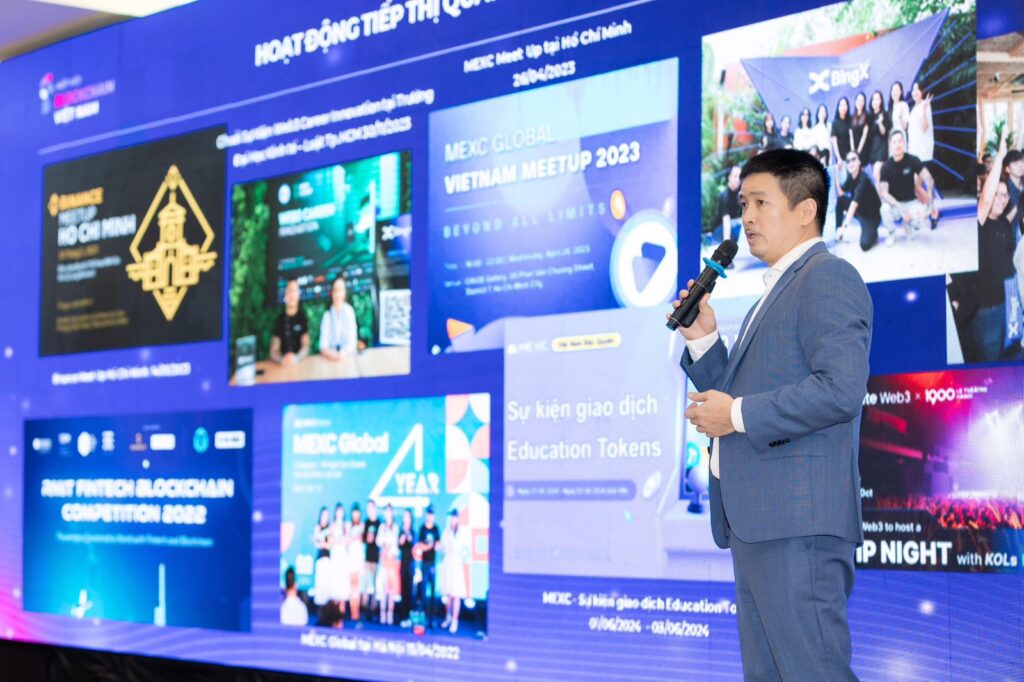
On June 5, 2024, the Vietnam Blockchain Association (VBA) held its 5th conference on the Legal Framework for Virtual Assets (VA) and Virtual Asset Service Providers (VASP) at the Ho Chi Minh City Party Committee Office, 272 Vo Thi Sau, District 1, Ho Chi Minh City.
The event gathered notable figures, including Mr. Tran Viet Hung, Former Deputy Chief of Office of the Central Party Committee; Mr. Tran Dinh Luong, Deputy Director of the Cryptography Department under the Government Cipher Committee; Mr. Ngo Thanh Nhan, Deputy Chief of the Economic Court at the Ho Chi Minh City People’s Court; representatives from the Ministry of Information and Communications, Ministry of Public Security, State Bank of Vietnam; Assoc. Prof. Dr. Nguyen Duc Trung, Rector of Ho Chi Minh City Banking University; Assoc. Prof. Dr. Tran Viet Dung, Vice Rector of Ho Chi Minh City University of Law; Mr. Do Ngoc Quynh, Secretary General of the Vietnam Bond Market Association; Mr. Tran Quy, Director of the Vietnam Institute for Digital Economy; and Mr. Le Trung Viet, Deputy Director of the Institute for Digital Economic Development Strategy.
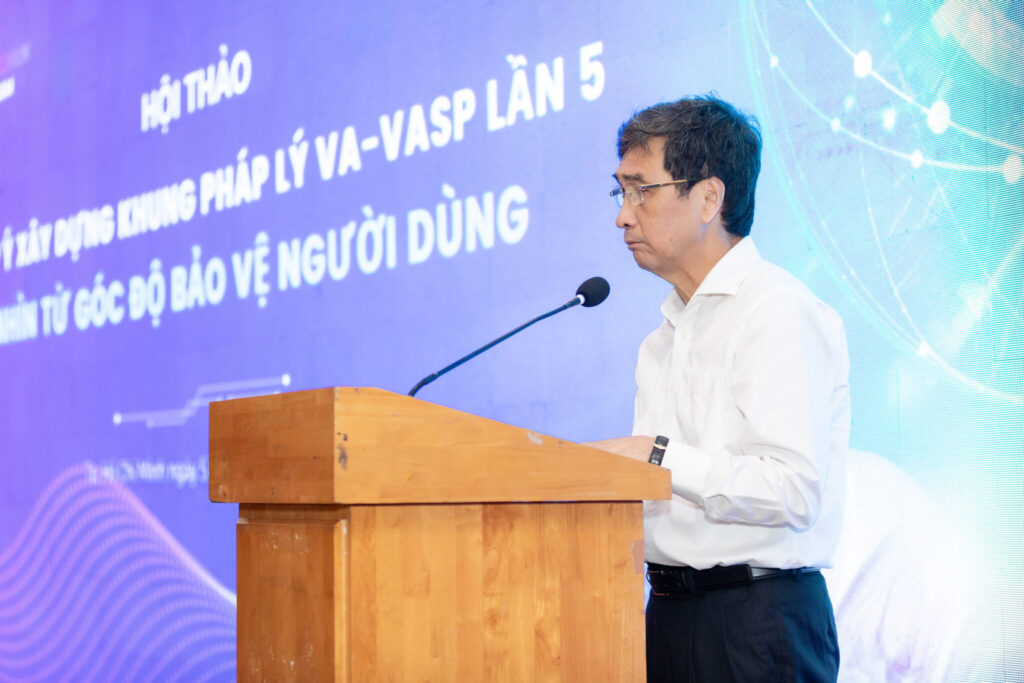
The conference also welcomed representatives from the consulates of Australia, France, the United States, South Korea, etc., and participants from various organizations, such as AC Communication, AlphaTrue, DecomStars, Nam Ha Law Firm, Tether, OKX, Vinotech, ICP, HoldStation, K300, and Kyros Ventures.
The conference was held less than a year before May 2025, the deadline for the issuance of a legal framework for virtual assets as per the government’s commitment to the National Plan for Anti-Money Laundering and Combating the Financing of Terrorism. This plan, established under Decision 194/QD-TTg on February 23, 2024, aims to remove Vietnam from the Financial Action Task Force (FATF) grey list.
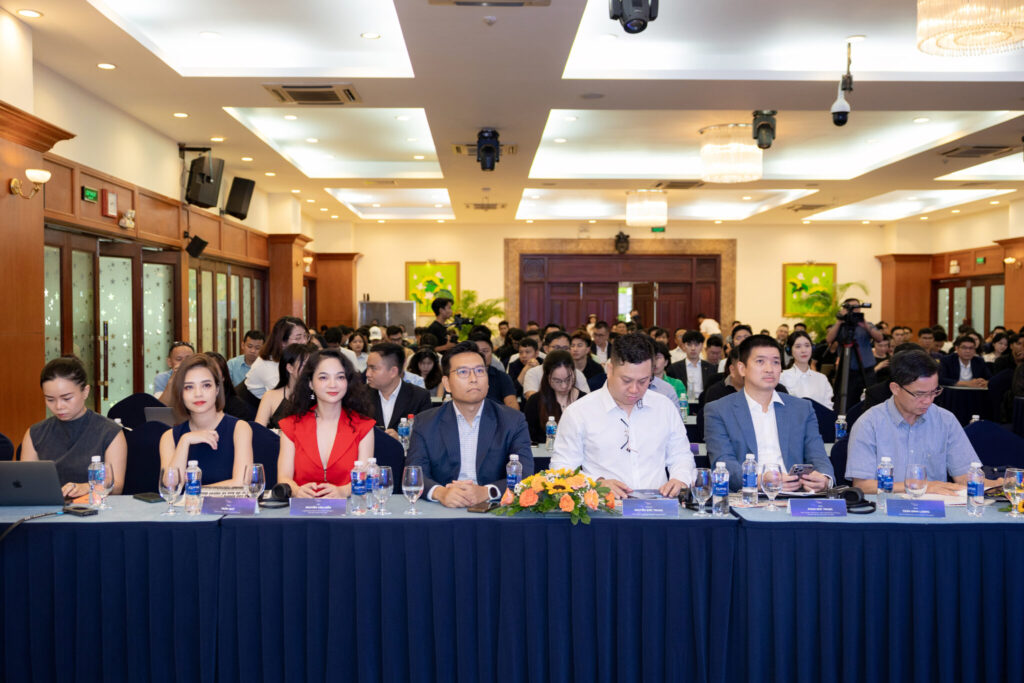
Key issues discussed included VA-VASP management as outlined in Action 6 (requiring the completion of a legal framework to regulate or ban VA-VASP activities by May 2025) and Action 7 (promoting policy dissemination in the private sector).
At the conference, experts discussed legal regulations from a user protection perspective and explored advanced VA-VASP management models such as the European Union’s Markets in Crypto-Assets (MiCA) regulation, effective from late 2024, and Hong Kong’s Virtual Asset Management Law.
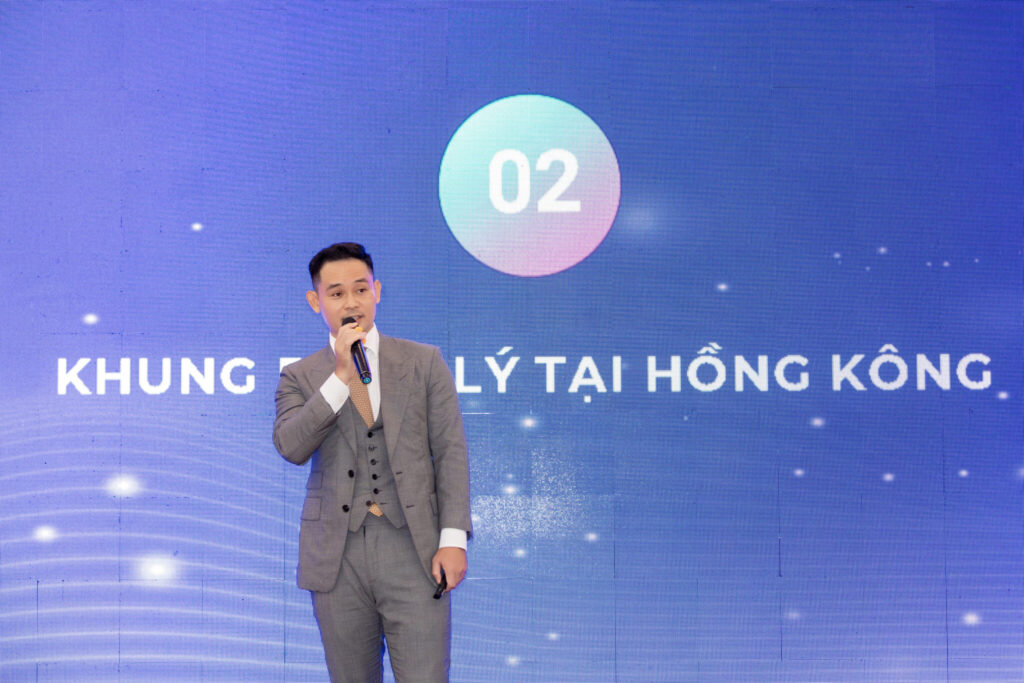
According to lawyer Nguyen Tran Minh Quan, CEO of Krysos Trust and member of Decom Holding, both MiCA and Hong Kong’s frameworks emphasize user protection through VASP licensing, AML/CFT compliance, transparency, data privacy, customer asset custody, and stringent operational standards. “While MiCA focuses on harmonizing regulations across the EU to facilitate cross-border activities, Hong Kong prioritizes strict penalties and high standards for customer asset protection,” Mr. Quan noted.
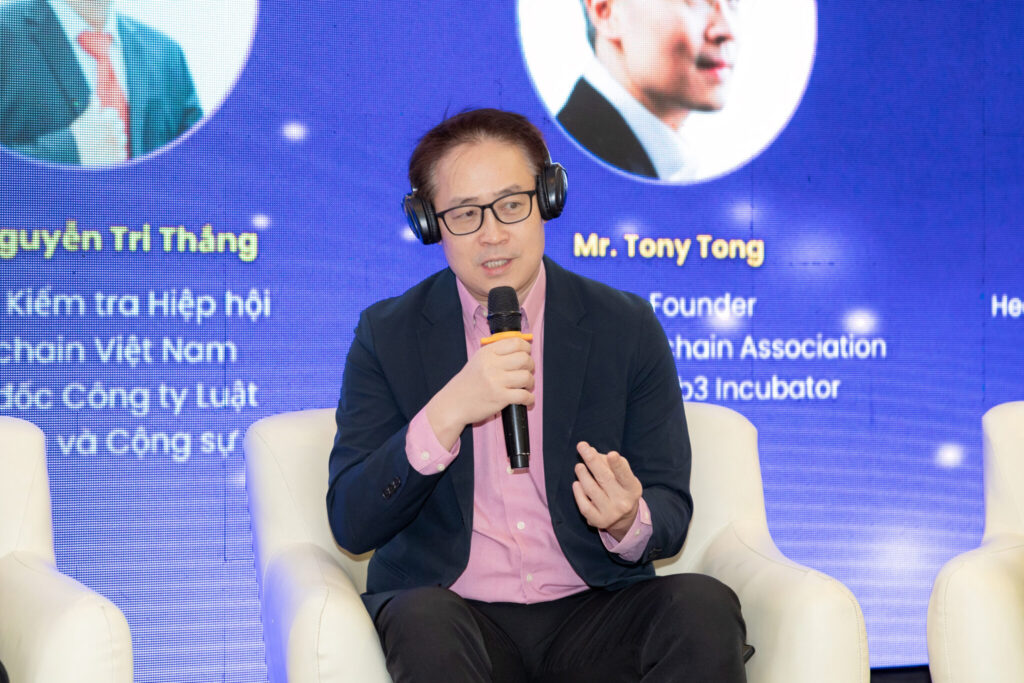
Sharing the same perspective, Mr. Tony Tong, Co-founder of the Hong Kong Blockchain Association, stated, “Comprehensive regulatory frameworks such as MiCA or Hong Kong’s present challenges for VASPs, including compliance costs, but also bring significant opportunities by increasing user trust, promoting market participation, and fostering the growth of the digital asset ecosystem.”
In Vietnam, the absence of a comprehensive legal framework has resulted in scattered regulations on VA-VASP across 19 legal documents. This has led to unregulated activities such as crowdfunding, fraud, and the unauthorized promotion of virtual asset services, including in universities and under the guise of educational initiatives.
Community reports highlight that unidentified entities like CrossFi, Mineplex, and ALEO frequently host private seminars, exploiting their image to attract capital from individual investors. Many user-submitted reports to the Vietnam Blockchain Association (VBA) indicate scams involving deposits and transactions on unverified platforms and wallets such as MEXC, Gate.io, and BingX.
Under current regulations, unlicensed VASPs operating in Vietnam risk violating Decree 13/2023/NĐ-CP on personal data protection. Violations include the illegal collection of personal data, failure to protect personal data, and misuse of such data for unauthorized purposes.
Asset transactions, especially those involving financial and real estate deals such as stablecoin trading, coin mining, token sales in GameFi, or NFT trading, are governed by Vietnam’s Tax Law and the 2022 Anti-Money Laundering Law. These activities expose unlicensed VASPs to risks of breaching tax compliance or anti-money laundering regulations.
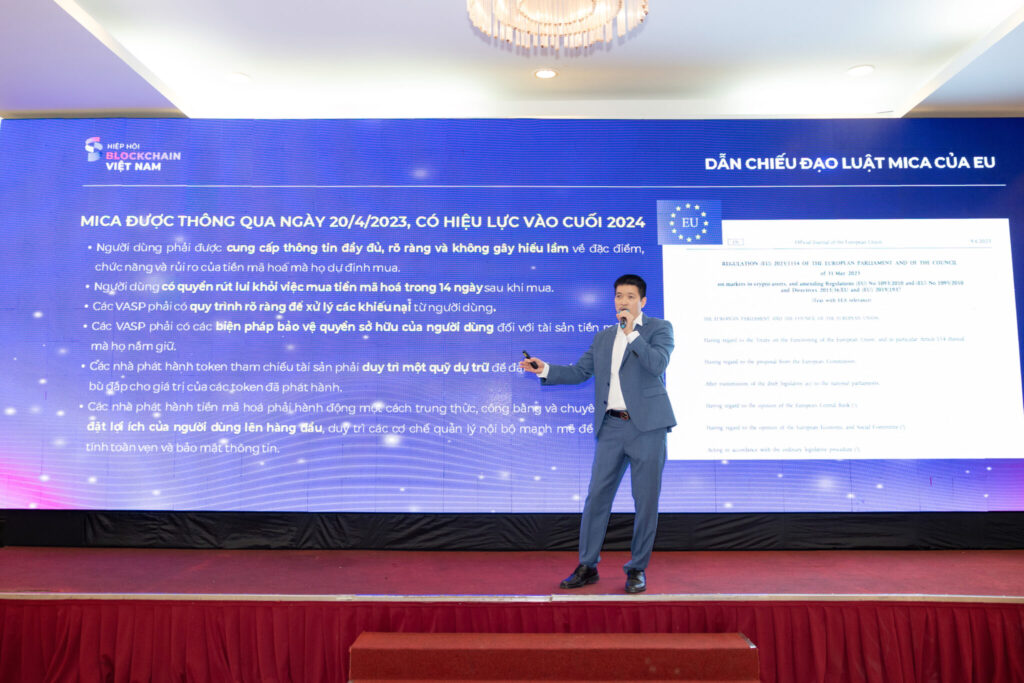
Mr. Phan Duc Trung, Standing Vice President of the Vietnam Blockchain Association, stated that in this context, it is essential for the community to collaborate in establishing ethical standards, community standards, project standards, and leveraging RegTech (Regulatory Technology) for on-chain tracking. These efforts can significantly minimize fraud and scams associated with virtual assets.
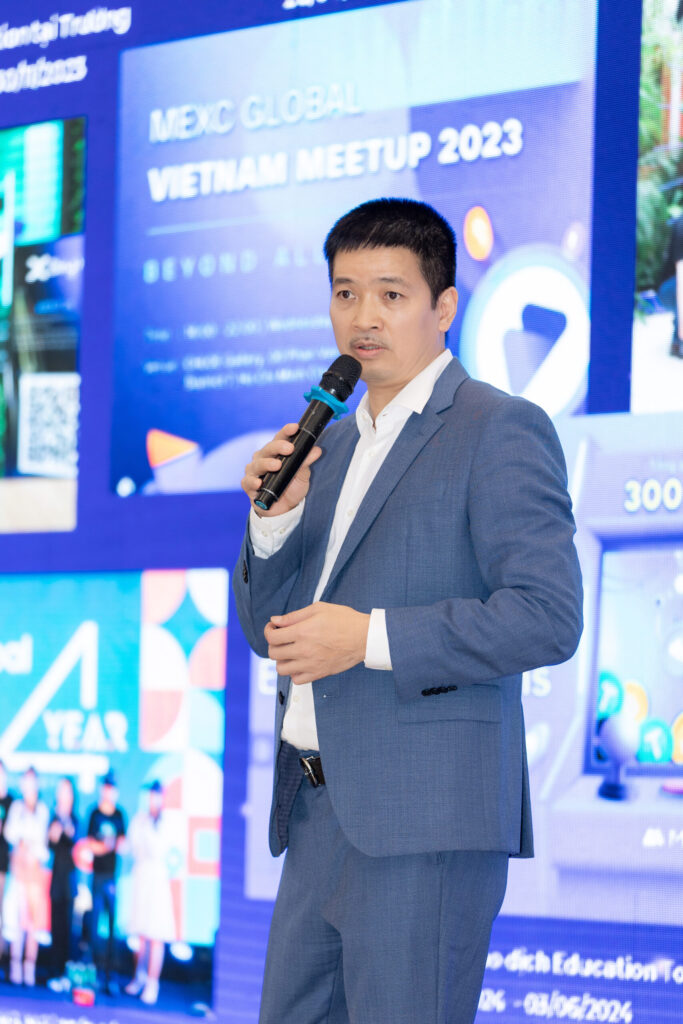
According to Mr. Trung, RegTech utilizes advanced technologies such as artificial intelligence (AI), machine learning, big data analytics, and blockchain to automate and optimize compliance processes. This reduces manual tasks, enhances accuracy, and ensures transparency in reporting. Leading global RegTech solutions provided by companies like Chainalysis, Certik, and Elliptic, along with Vietnam’s virtual asset tracing initiative—Chain Tracer—will play a critical role in regulating VA-VASP activities, combating fraud, and ensuring compliance with AML/CFT requirements.
For regulators and VASPs alike, Mr. Trung emphasized the importance of combining practical experience from traditional finance, particularly its risk management principles, with deep expertise in emerging technologies when building and enforcing a legal framework for VA-VASP management. Fundamental compliance principles, such as KYC (Know Your Customer), KYB (Know Your Business), KYI (Know Your Investor), and KYT (Know Your Transaction) from traditional finance, should also be applied to virtual asset management. This approach aims to safeguard customer rights, ensure system sustainability, and foster innovation.
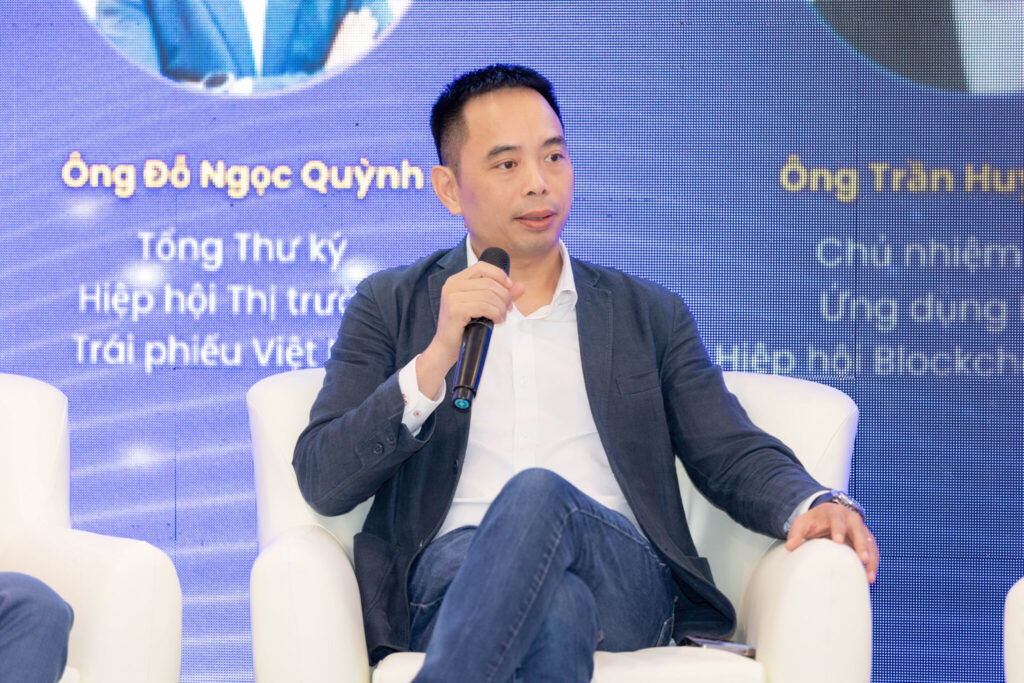
Mr. Do Ngoc Quynh, Secretary General of the Vietnam Bond Market Association, emphasized that virtual assets and related activities are a social reality existing on a large scale in Vietnam and globally. Virtual assets can be considered one of many innovative advancements applying cutting-edge technology to the development of society, aiming to meet human needs better. The strong global and local engagement from users demonstrates that this innovation has partially addressed societal demands for growth. Creative ideas often precede the establishment of legal frameworks, bringing both positive and negative impacts on society.
Therefore, the creation of a legal framework is essential and should be expedited to protect legitimate users, fully leverage the advantages of new technologies for societal development, and mitigate potential adverse effects.
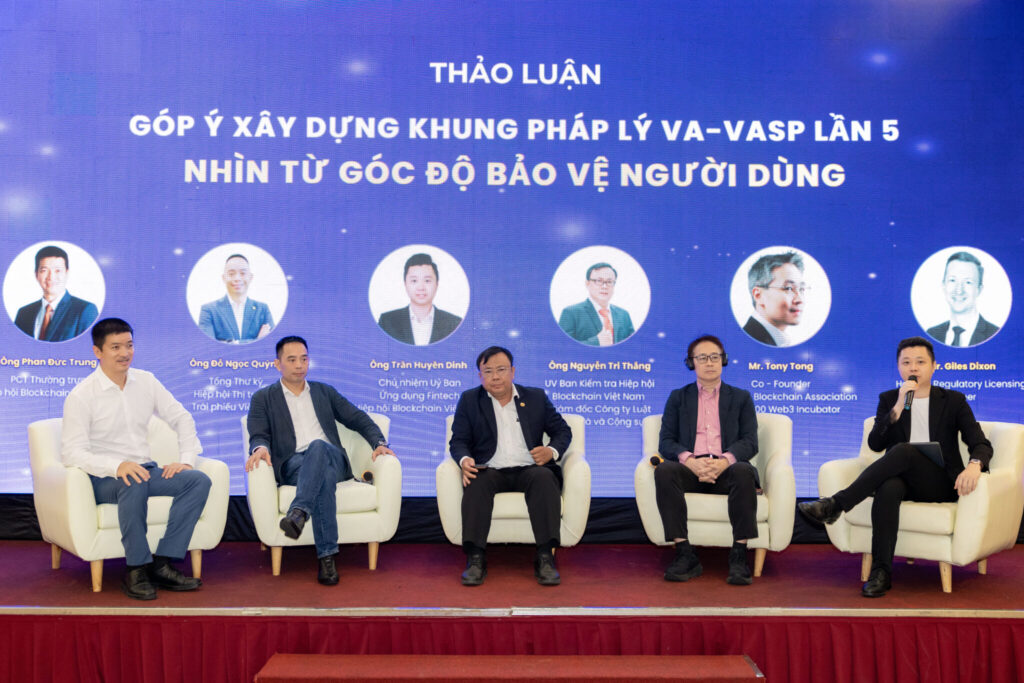
Mr. Giles Dixon, Legal Director of Tether, contributing his insights via an online connection, stated that Tether prioritizes regulatory compliance as its foremost objective in every country it operates. Vietnam’s active efforts in developing a legal framework are a positive signal, not only for Tether but also for other VASPs, enabling them to invest and expand operations in Vietnam through official and legitimate channels in the future.
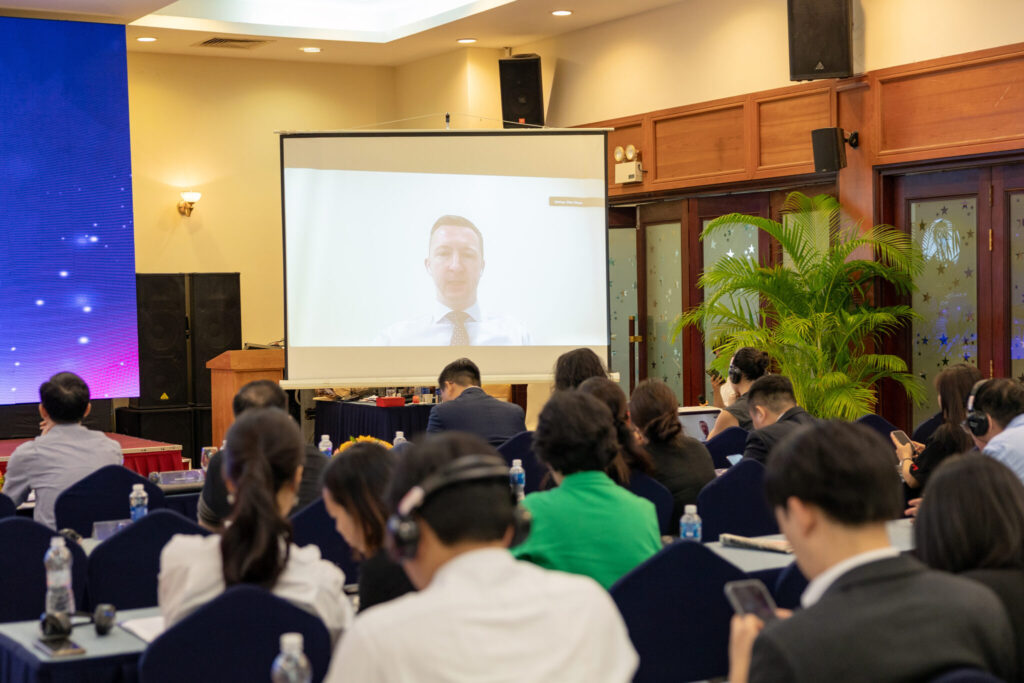
The conference titled “Legal Framework for Virtual Assets: A User Protection Perspective” was held at the Ho Chi Minh City Party Committee Office, attended by over 300 guests. Participants included representatives from the Office of the Central Party Committee, the Ho Chi Minh City People’s Court, the Government Cipher Committee, the Ministry of Public Security, the State Bank of Vietnam, the Ministry of Information and Communications, the National Electronic Authentication Center, the Cybersecurity Emergency Response Center, the Vietnam Banking Association, the Vietnam Bond Market Association, the Vietnam Institute for Digital Economy, the Institute for Digital Economic Development Strategy, and consulates from Australia, France, the United States, South Korea, among others. Numerous press and television agencies in the city also participated.
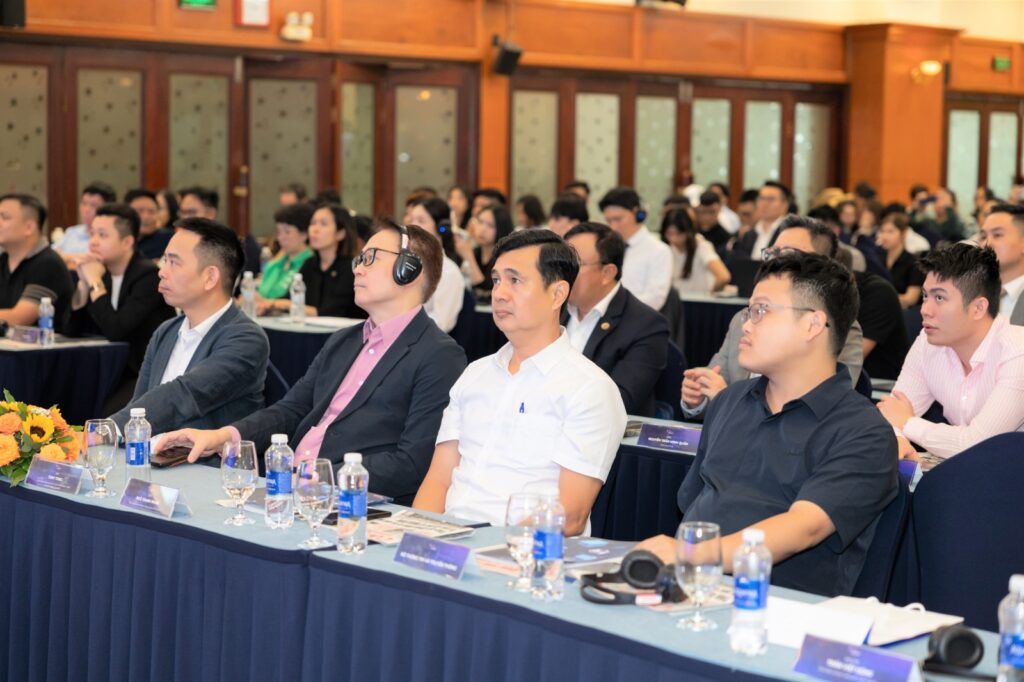
Previously, the Vietnam Blockchain Association had organized four workshops to gather feedback on the legal framework for virtual assets. These events drew more than 4,000 in-person participants, generated over 400 articles in reputable newspapers, and television reports, and reached over one million engagements through media and social platforms. The initiatives also collected over 100 opinions and valuable contributions from domestic and international partners.
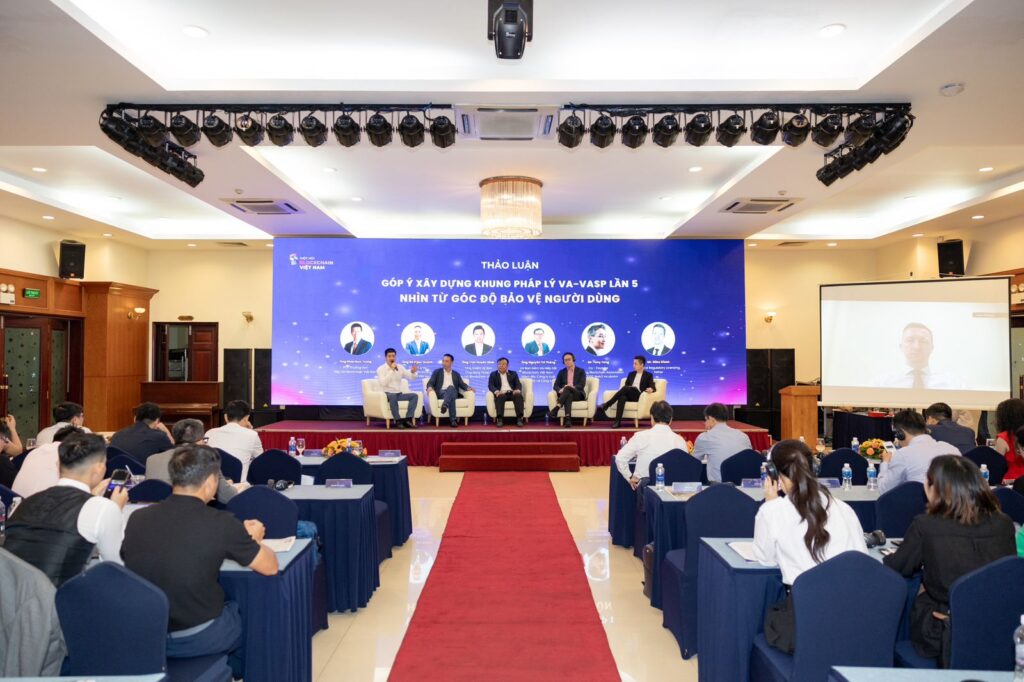
Following the events, the Vietnam Blockchain Association compiled a comprehensive report on the Legal Framework for Virtual Assets, including feedback gathered during the conferences, and submitted it to relevant state agencies responsible for the respective fields.
Globally, the issue of legal frameworks for virtual assets is gaining significant attention. For instance, in the United States, approximately 50 bills related to cryptocurrencies are currently under review at various stages in Congress. Some countries, such as Switzerland, have integrated Bitcoin into university curricula to enhance students’ skills and preparedness before graduation.
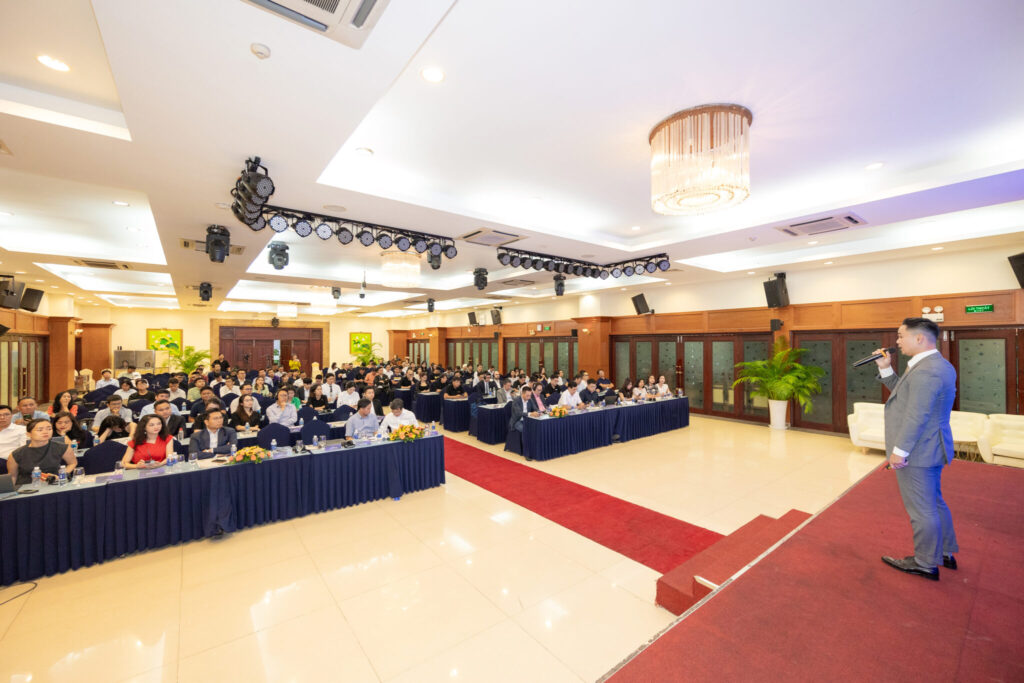
According to the latest research from the Atlantic Council (AC), as of December 2023, 32 out of 60 countries have officially legalized cryptocurrencies. Notably, 10 G20 countries, which represent 50% of global GDP, have enacted comprehensive regulations for managing Virtual Assets (VA) and Virtual Asset Service Providers (VASP). In the United States, the world’s largest economy, a legal framework for VA-VASP has been fully implemented, meeting all four key regulatory standards.
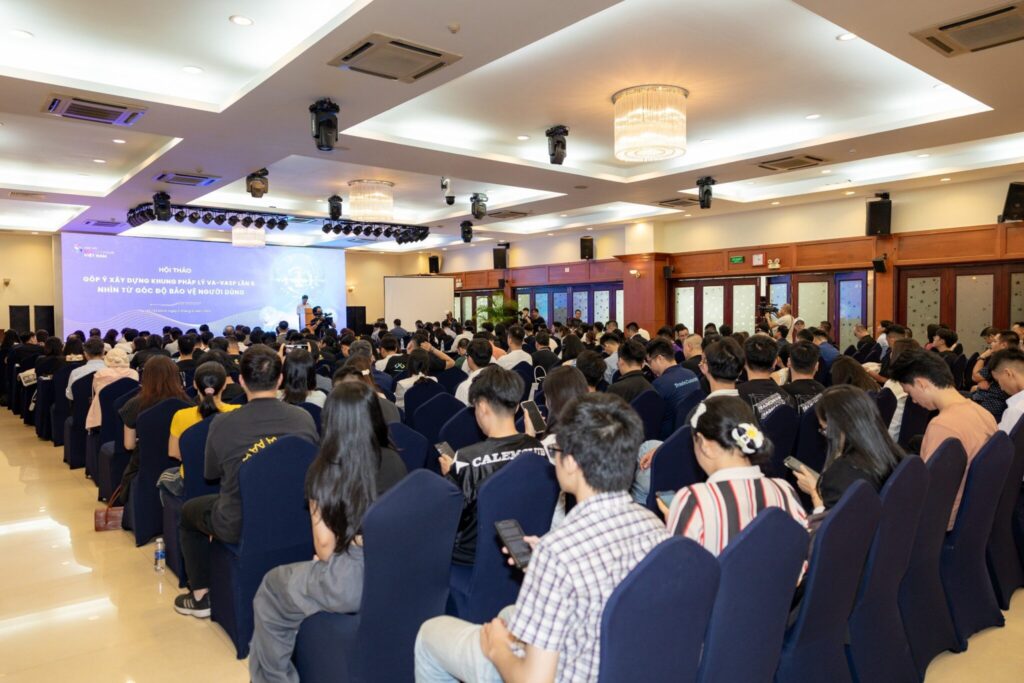
In China, while it has not met any of the key regulatory criteria, the issue of legal frameworks requires consideration from entirely different perspectives due to geopolitical factors.
In practice, China does not ban cryptocurrencies but instead manages them through a regional economic zone-based approach to create localized advantages. On the mainland, the government has developed a Blockchain Service Network (BSN) to oversee all domestic digital assets. The BSN comprises three networks aimed at segmenting users, including public institutions, enterprises, and both domestic and international markets. Furthermore, global digital assets are given a competitive edge through Hong Kong. The Chinese government aims to promote this special economic zone as a prioritized market development area with an open and comprehensive regulatory framework, which is considered a model for other nations.
In Asia, Cambodia, a neighboring country of Vietnam, while lacking a comprehensive legal framework, has implemented regulations for VASP licensing. Meanwhile, Japan, South Korea, Singapore, and Thailand have fully established legal frameworks meeting all four key regulatory standards.
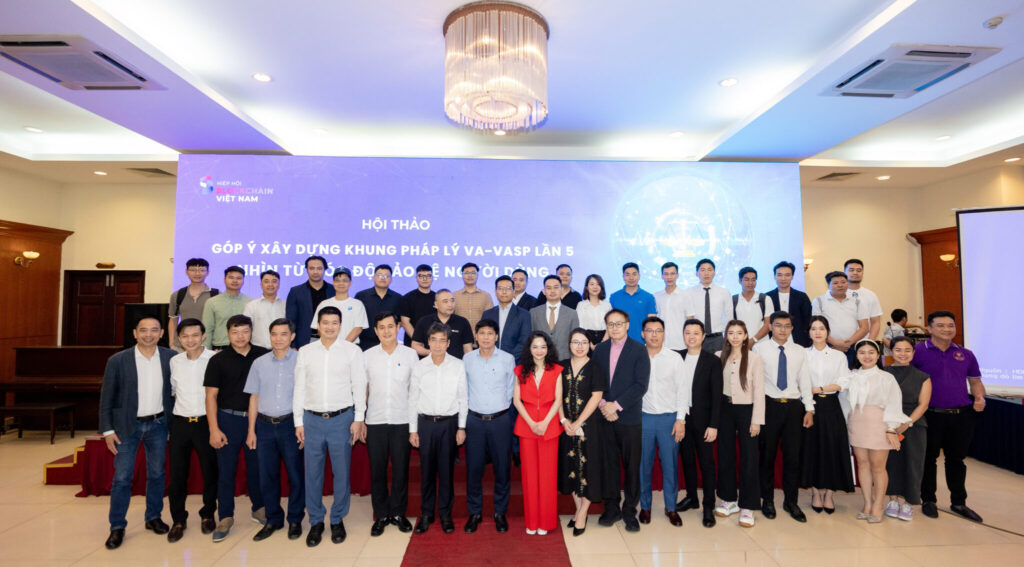
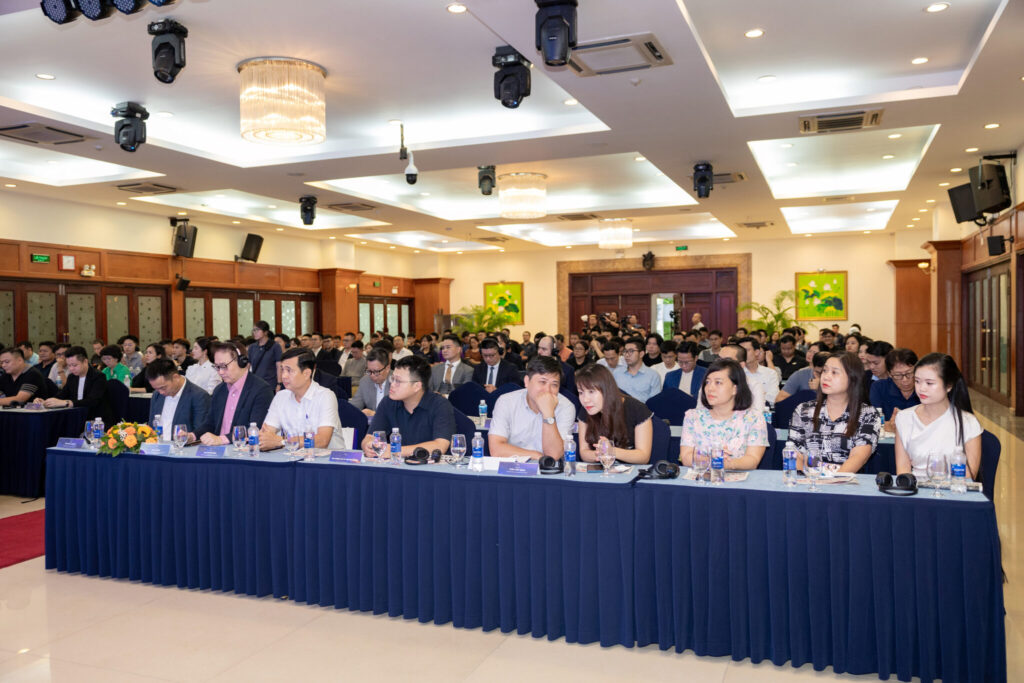
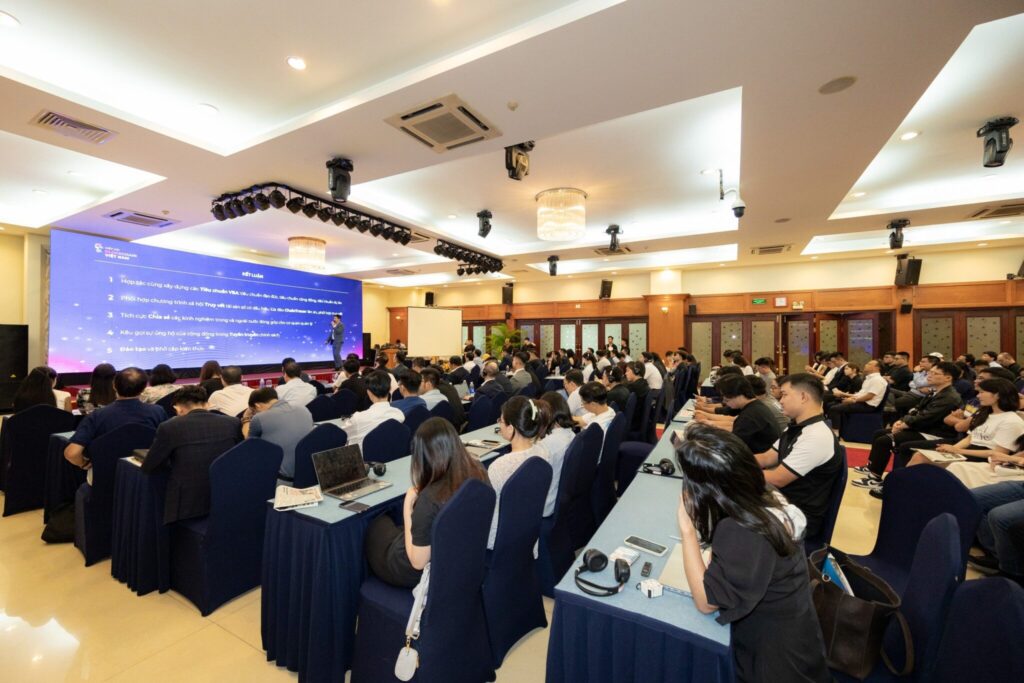

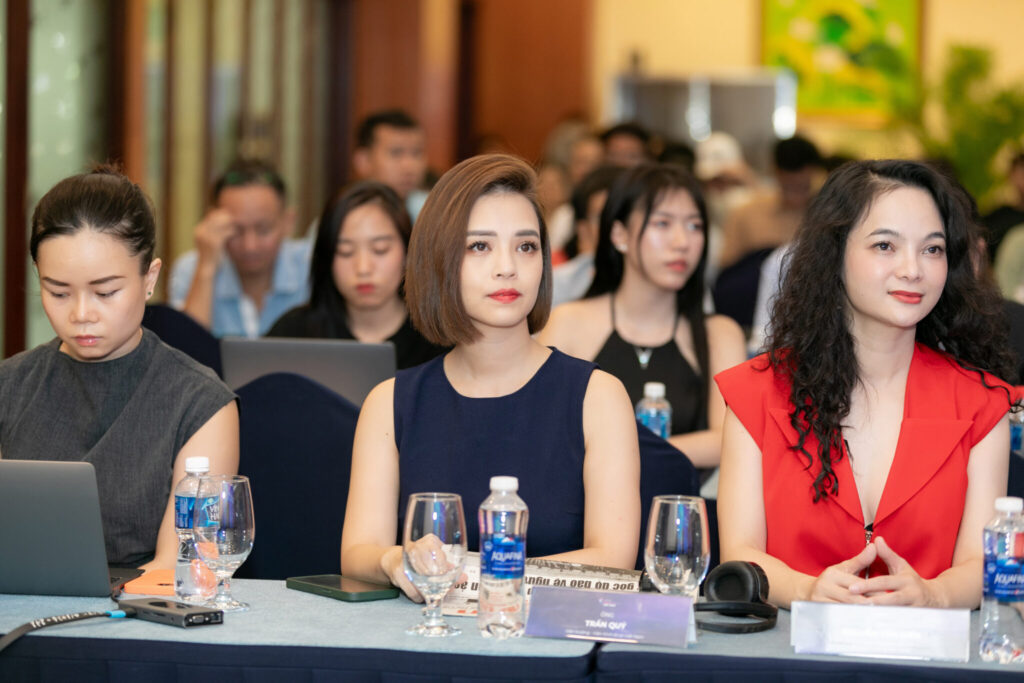
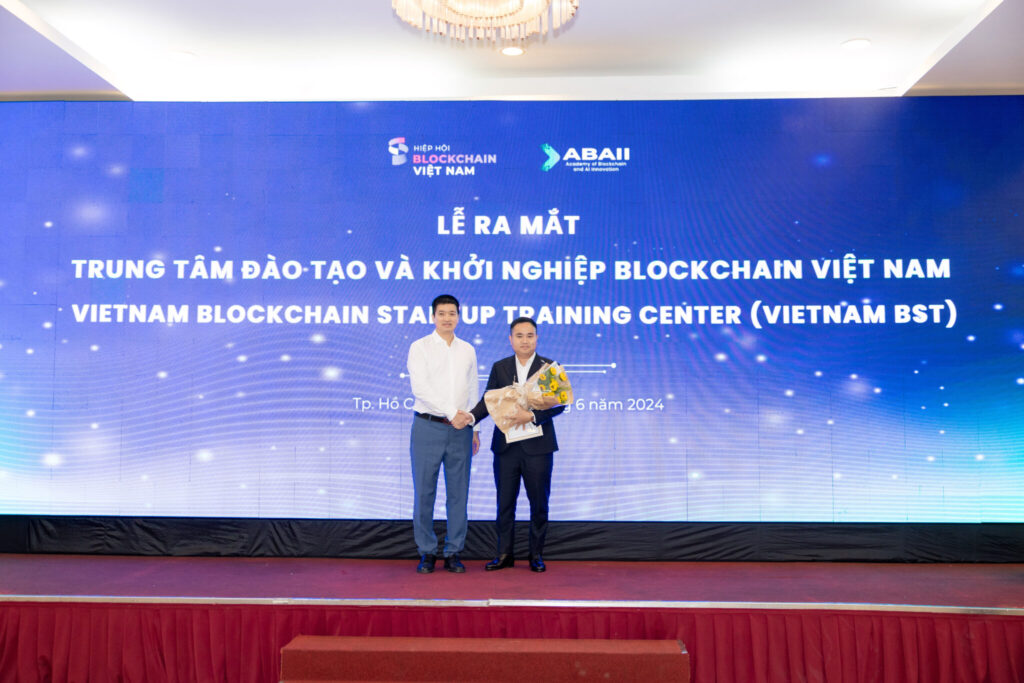
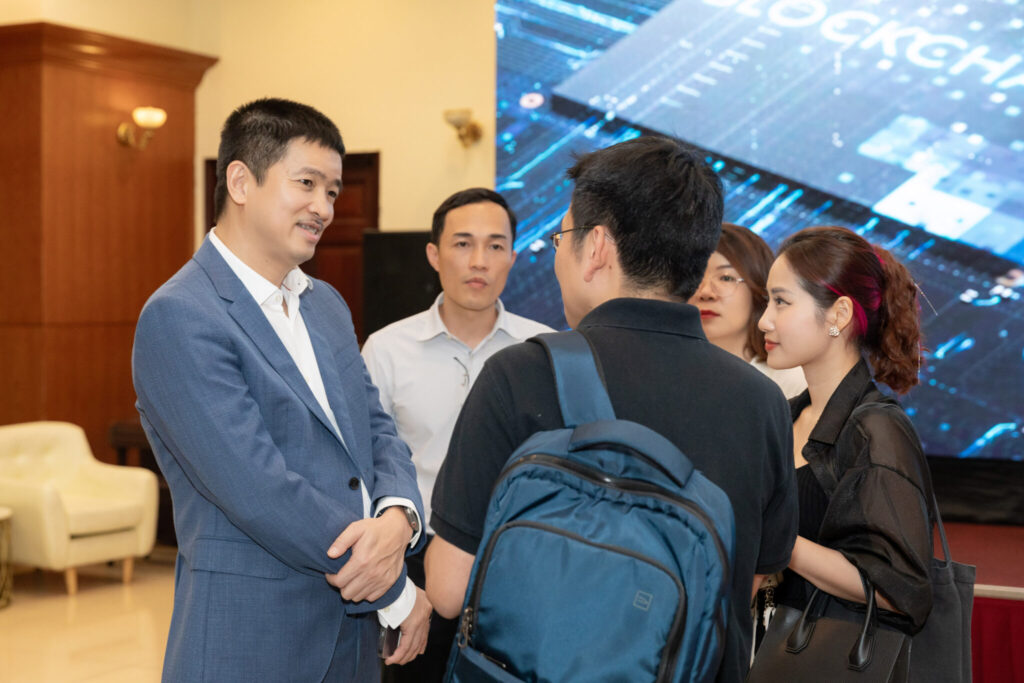
Terminology Explanation:
- KYC (Know Your Customer): Verification of customer identity.
- KYB (Know Your Business): Due diligence on business partners before establishing partnerships.
- KYI (Know Your Intermediary): Due diligence on intermediaries.
- KYT (Know Your Transaction): Verification of transactions.
